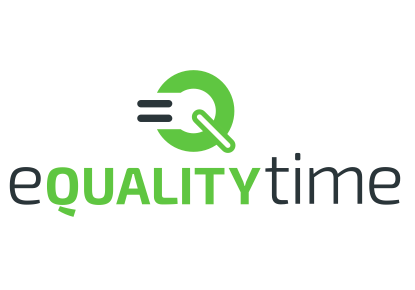In an team with real flexible work you would be able to shut your laptop at any time without any guilt.
There’s lots of reasons you might want to. Maybe you are sick. Maybe someone you care about is sick. Maybe you want to spend some time on your mental health and maybe someone has broken into your house and you need to ring the police. The reason isn’t important. What is important is that you know the system will be fine.
We know this is possible because Wikipedia works that way. So do the writing camps that we run in schools: sometimes students are sick, or suddenly expelled, or drop out. The system continues.
I want eQuality Time’s work to be real flexible work as far as it can.
To make that happen, we have to build it in from the start. Here’s what we need to be doing:
No hiding
Unless a file contains confidential info (in almost all cases this means ‘personal information about an individual), it is shared. All our files are in Dropbox or Google Drive. No exceptions.
Always act like someone else will be the next person to work on this
eQuality Time uses github issues to manage our work. On each issue we (try to) list all things we need, and the steps needed to meet the goal. If we’ve done that right, then someone else can come along and say “Oh, this is a funding application – I see they’ve created the folder in Dropbox and marked that off, and the next thing to do is to copy and paste the question information into a new word file – I can do that for them”. If we act like someone else will do that, then we get really good at writing specific plans.
No locking
We never write: “I’m going to do X” on an , because then the project needs you before it can move forward. Instead we write “The next thing to do is X”. That way someone else can do it when they have a free moment. You might have been looking forward to doing X, or you might worry that someone else would do X wrong – in which case you should either have done X or you should give so much detail about X that it’s hard to do wrong.
Rewrite a process every time you follow it
There are lots of activities that we do again and again. A good example is publishing books from White Water Writers. For these activities, we’ve put the list of steps and advice into a wiki so that people don’t have to work it out every time. The important bit is this: when you are working through a process on the wiki, you should also be rewriting it. This might be because you are dealing with a special case, or because there’s something you missunderstood at first and you want other people to be warned, or because you want to add photos or reword. You might be rewriting it because you want to do it a bit differently this time and that’s fine. We rewrite so that the next person to follow the process finds it easier, and also so because it keeps us honest.
We work on the most important action first
If we have real flexible work, then we have NO locking. Without locking, it’s impossible to know what you are going to work on before you log in. Someone might have logged in overnight and finished off the last project you were looking at or someone working on an important project might have fallen ill. So when we log on, we should look at the most important project first (they are sorted by importance).
By definition, working on the most important project is the most important thing to do.
The last person to work on it should have followed “Always assume someone else will be the next person to work on this” and there will be a written down action for you to take. If it’s something with a process (like publishing a book) then it’s easy for you to do the next action and move the project along. If there isn’t an action written, then it’s worth pinging Joe (or, in future, the person on call) and finding out what the action should be. Work on the second most important issue while you wait.
Bottom line
Of course, there are deadlines. This system only works if there is someone that you can pass the work onto. Or, someone who is senior enough to say “Okay, we can drop that ball”. At eQuality Time, both of those people, are, sooner or later, Joe. Sometimes he might make the call to abandon a project – because we put worker’s heath above projects. Sometimes he might do it himself. But there is somewhere that the buck stops.
